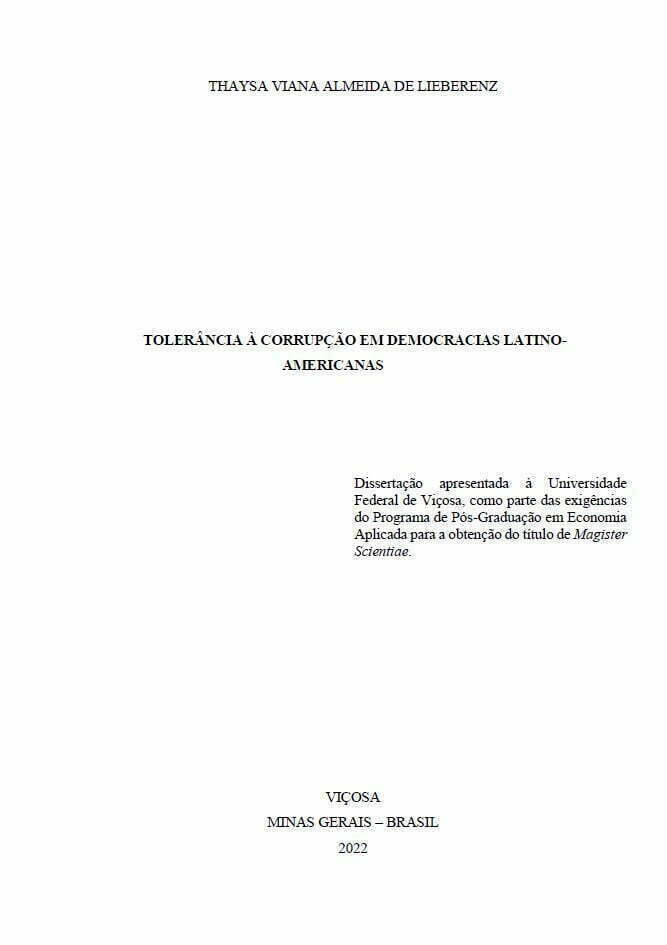
[Abstract]
Corruption is conduct – or practice – that deviates from standard expectations in the performance of the functions of entrusted power. What is or is not perceived as corruption varies among individuals, in space and time. There will always be a certain degree of permissiveness towards corruption in society, with some of them being more likely to justify corrupt practices than others. This dissertation focuses on understanding the elements that condition tolerance to corruption, at the individual level, in Latin American democracies. To do so, an ordered probit model was calculated, using data from the 2020 Latinobarometer.
The results indicate that men, on average, are more likely to have lower tolerance for corruption than women; that individuals with lower educational attainment are more likely to be more tolerant of corruption; and that higher levels of religious practice tend to be associated with tougher attitudes toward corruption. The results also show that employees in private companies are more likely to be more tolerant than those in public companies. With regard to the perception of the extent of corruption, individuals who believe that corruption has increased or greatly increased in the year 2020 tend to be less tolerant of corruption and those who are more satisfied with democracy show a lower tendency to tolerate corruption. Trusting many government institutions – national and international – is also associated with a lower tolerance for corruption, a similar result for individuals who prefer a freer society.
It can be seen that, when comparing with the year 2016, the conditionals of tolerance to corruption remained the same, except for the result by gender. This study provides relevant evidence on the individual determinants of corruption tolerance in Latin American democracies and thus helps us understand why corruption is more resilient in some societies than in others.
NOTE: The work was developed in partnership with the EPOCA group: corruption and economic crisis – ICS-Lisbon
Publication Year: 2022
Student: Thaysa Viana Almeida de Lieberenz
Advisor: Prof. Dr. Viviani Silva Lírio
Co-Supervisor: Felippe Clemente
Program: Master in Applied Economics
University: Federal University of Viçosa (Brazil)






